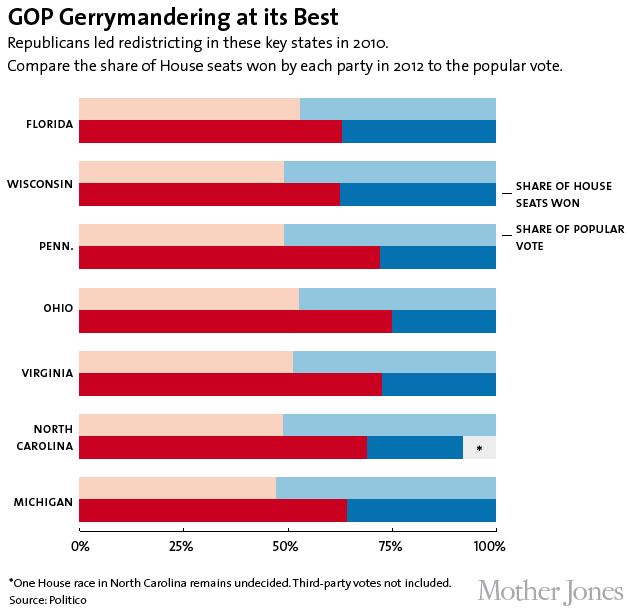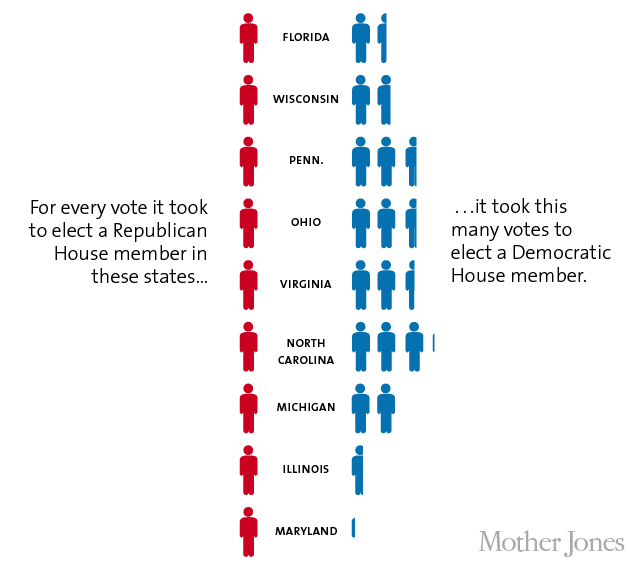Davka
Senior Member
A recent study revealed that the last 4 elections - 2010, 2012, and 2014 - showed the same pattern across the nation: The majority of Americans voted for Democrats, but because of gerrymandered districts, the great majority of seats were 'won" by Republicans. This is not only true on a national level, it is also the case on a state level in nearly every single swing state.
The result is that we no longer have proportional representation in this country. If we did, the House and Senate would be far closer to a 50/50 split today. Instead, the widespread creation of safe seats have not only given the Republicans an unearned majority, it has made the primaries the only election that really matters. The result is that traditional Republicans are running against far-right Republicans, creating an extremist legislature.
Now That's What I Call Gerrymandering!
Gerrymanders, Part 1: Busting the both-sides-do-it myth
In personal terms, this means that - even though I live in the most liberal area in North Carolina - my vote was rendered null and void by the careful creation of safe Republican seats via dilution of the Democrat vote. Asheville, a college town and a hippie mecca, is represented in both the State House and in D.C. by Republican legislators.
This strikes me as an abrogation of my Constitutional right to proportionate representation. In fact, it strikes me as so blatantly in opposition to the spirit and letter of the Constitution, that I am considering asking the ACLU to take up a suit against the State of North Carolina. I would like top take this idea to a Constitutional scholar at a local University, and ask for help in crafting my initial argument. But even before taking this step, I thought I'd ask folks here what they think. If you were to approach a Constitutional scholar for help in suing the State, how would you word your verbal argument?
The result is that we no longer have proportional representation in this country. If we did, the House and Senate would be far closer to a 50/50 split today. Instead, the widespread creation of safe seats have not only given the Republicans an unearned majority, it has made the primaries the only election that really matters. The result is that traditional Republicans are running against far-right Republicans, creating an extremist legislature.
Now That's What I Call Gerrymandering!
Gerrymanders, Part 1: Busting the both-sides-do-it myth
In personal terms, this means that - even though I live in the most liberal area in North Carolina - my vote was rendered null and void by the careful creation of safe Republican seats via dilution of the Democrat vote. Asheville, a college town and a hippie mecca, is represented in both the State House and in D.C. by Republican legislators.
This strikes me as an abrogation of my Constitutional right to proportionate representation. In fact, it strikes me as so blatantly in opposition to the spirit and letter of the Constitution, that I am considering asking the ACLU to take up a suit against the State of North Carolina. I would like top take this idea to a Constitutional scholar at a local University, and ask for help in crafting my initial argument. But even before taking this step, I thought I'd ask folks here what they think. If you were to approach a Constitutional scholar for help in suing the State, how would you word your verbal argument?


